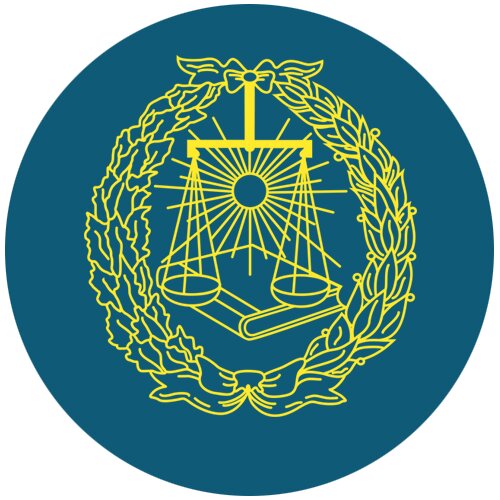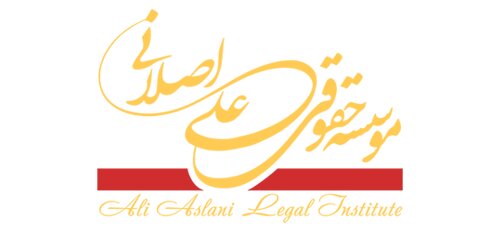Best Restructuring & Insolvency Lawyers in Iran
Share your needs with us, get contacted by law firms.
Free. Takes 2 min.
Or refine your search by selecting a city:
List of the best lawyers in Iran
About Restructuring & Insolvency Law in Iran
Restructuring and insolvency law in Iran provides a legal framework for addressing situations where individuals or businesses are unable to meet their financial obligations. The main objective of these laws is to create mechanisms that protect the rights of creditors and debtors, while also maintaining economic stability. In recent years, Iran has made several updates to its insolvency regulations, aligning them with international standards and best practices. These laws encompass various procedures, such as formal bankruptcy, out-of-court restructuring, and corporate reorganization, designed to either revive struggling businesses or, when necessary, oversee their orderly dissolution.
Why You May Need a Lawyer
Legal issues related to restructuring and insolvency can be complex and technical, often involving significant financial implications. There are several common situations in which you may require the assistance of a lawyer:
- You are a business owner facing financial difficulties and considering options like debt restructuring or bankruptcy.
- A creditor owes you a substantial amount and you are concerned about the likelihood of recovering your funds.
- You are involved in litigation related to insolvency proceedings, such as disputes over asset distribution or creditor rankings.
- You are seeking to buy assets from a company undergoing restructuring or insolvency.
- You need to understand your rights and responsibilities when notified of a debtor’s insolvency filing.
- You want to negotiate or draft settlement agreements with creditors or debtors.
A skilled lawyer can provide advice on your legal options, represent your interests in court or negotiations, and help ensure compliance with all relevant laws and procedures.
Local Laws Overview
Restructuring and insolvency law in Iran is primarily governed by the Iranian Commercial Code and the Law for Preventing Bankruptcy of Productive Units in Critical Conditions. Broadly, insolvency proceedings can be initiated by the debtor or by creditors when an obligation cannot be met. The legal framework offers these key features:
- Bankruptcy Definition: A person or company is considered bankrupt if they are unable to pay their debts as they fall due. The process can be either by adjudication (court declared) or on an administrative basis.
- Commencement of Proceedings: A bankruptcy process starts with a petition filed by either the debtor or creditors. The court reviews evidence and appoints a trustee to assess assets and liabilities.
- Debt Restructuring: In certain cases, businesses may apply for court-supervised restructuring arrangements to avoid bankruptcy and continue operations under revised terms.
- Order of Creditors: Iranian law specifies the order in which creditors are paid during insolvency, prioritizing specific debts like employee wages and social security contributions.
- Asset Distribution: The court oversees the liquidation and fair distribution of assets among creditors.
- Penalties: There are penalties for fraudulent bankruptcy, asset concealment, or misrepresentation during proceedings.
- Cross-Border Issues: International insolvency matters, while relatively rare, may require coordination with authorities in other countries and adherence to local rules.
Frequently Asked Questions
What is the difference between restructuring and insolvency?
Restructuring involves modifying terms with creditors or operations to help a business recover and avoid insolvency. Insolvency is a legal state where a person or business cannot pay debts as they come due, often resulting in bankruptcy proceedings.
Who can file for bankruptcy in Iran?
Both individuals and companies who are legally recognized in Iran and are unable to pay their debts may file for bankruptcy through the courts.
How are creditors treated during insolvency in Iran?
Creditors are ranked according to the law, with certain debts like employee wages taking priority. The court ensures that any available assets are distributed according to this ranking.
Is it possible to restructure debt without going to court?
Yes, parties can negotiate out-of-court restructuring agreements. However, if these efforts fail, court intervention may become necessary.
How does the insolvency process start?
The process begins when the debtor or a creditor files a petition with the relevant commercial court. The court then reviews the financial situation and may declare bankruptcy if legal criteria are met.
What happens to the company during restructuring?
During restructuring, the company continues operations under court supervision. Specific arrangements may be made to reduce debt burdens, reorganize corporate structure, or improve cash flow.
Are managers or directors liable during bankruptcy?
Managers and directors may be held liable for fraudulent activities, mismanagement, or breaches of fiduciary duties during insolvency. Iranian law sets out penalties for such conduct.
Can foreign creditors participate in Iranian insolvency proceedings?
Yes, foreign creditors may participate, but they must follow local legal procedures and may face additional requirements based on their jurisdiction.
What are the consequences of being declared bankrupt?
Bankruptcy may result in asset liquidation, loss of business operations, damage to credit rating, and restrictions on certain civil rights. Rehabilitation with creditors may be possible in some cases.
How long does the entire insolvency process usually take?
The timeline varies based on case complexity, size of the estate, and court workload. Simple cases may take several months, while complex corporate bankruptcies can last over a year.
Additional Resources
For those seeking information or assistance, these resources may be helpful:
- The Iranian Judiciary (Dadgostari) provides official guidance and information on insolvency filings and court procedures.
- The Iranian Ministry of Justice supervises commercial courts and legal professionals specializing in bankruptcy law.
- Local Bar Associations can help connect you with experienced restructuring and insolvency lawyers.
- The Central Bank of Iran and related government financial supervisory bodies issue policies that may affect restructuring initiatives for corporations.
- Non-governmental organizations and accounting associations can offer guidance on business recovery planning and compliance requirements.
Next Steps
If you need legal assistance in restructuring and insolvency matters, start by organizing all relevant financial and legal documents. Consider seeking professional advice from a qualified lawyer who specializes in this area of law. Contact the local Bar Association or reputable law firms for recommendations. If you are a business owner, consult with financial advisors and auditors to assess your situation before initiating any legal proceedings. Acting early and getting expert guidance can help you navigate the complexities of restructuring and insolvency law in Iran while protecting your interests.
Lawzana helps you find the best lawyers and law firms in Iran through a curated and pre-screened list of qualified legal professionals. Our platform offers rankings and detailed profiles of attorneys and law firms, allowing you to compare based on practice areas, including Restructuring & Insolvency, experience, and client feedback.
Each profile includes a description of the firm's areas of practice, client reviews, team members and partners, year of establishment, spoken languages, office locations, contact information, social media presence, and any published articles or resources. Most firms on our platform speak English and are experienced in both local and international legal matters.
Get a quote from top-rated law firms in Iran — quickly, securely, and without unnecessary hassle.
Disclaimer:
The information provided on this page is for general informational purposes only and does not constitute legal advice. While we strive to ensure the accuracy and relevance of the content, legal information may change over time, and interpretations of the law can vary. You should always consult with a qualified legal professional for advice specific to your situation.
We disclaim all liability for actions taken or not taken based on the content of this page. If you believe any information is incorrect or outdated, please contact us, and we will review and update it where appropriate.
Browse restructuring & insolvency law firms by city in Iran
Refine your search by selecting a city.














